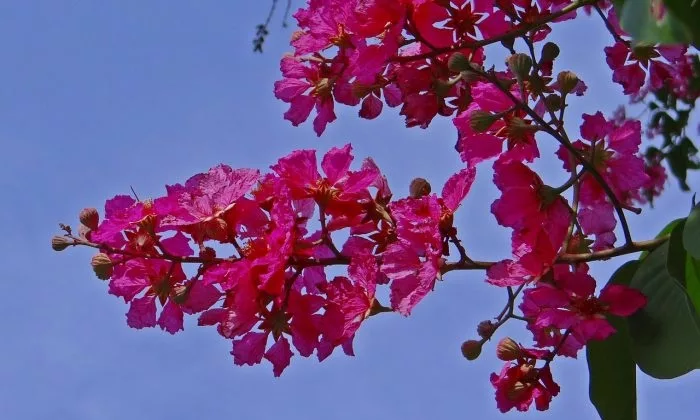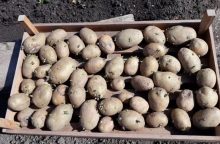Japanese myrtle and its cultivation

No wedding is complete without a myrtle strapped in a lapel or dress and so we should introduce this plant in more detail. Japanese myrtle belongs to the Myrtaceae family which contains more than 100 species. It comes from the Mediterranean, where you can see it growing the wild. You will recognize it at first sight, because the shrub reaches height of 3 to 5 meters and it has small, shiny and very stiff leaves. Flowers are white or yellow and the fruit resembles a black berry.
Caring for myrtle
The most important thing is to give myrtle enough light. Sunlight should shine directly on the plant, otherwise it will not grow. Myrtle can easily withstand high temperatures but surprisingly, during the winter, temperatures ranging between 6 and 8 degrees Celsius are also ok. Be generous with watering during summer, but keep it to an absolute minimum in winter. After flowering, do not forget to prune your plant.
Soil and fertilization
Proper soil is very important for myrtle growth. The most suitable soil should contain a high percentage of peat and some lighter soil. Medium-permeable soil with high topsoil content is recommended. Make sure to fertilize your plant every 14 days. Use 0.1 to 0.2% fertilizer solution, which contains nutrients specially added for shrubs.
Propagation and the most common diseases
Myrtle is propagated using top or root cuttings. The best time for propagation is between September and October. The length of the cuttings shall be around 6 cm. Myrtle usually takes good root after 4 weeks. Plant the seedlings in flowerpots and make sure the temperature is around 16 degrees Celsius. When growing myrtle make sure not to get the plant too wet, as too much moisture will cause the leaves to fall off. As for pests, watch for spider mites, aphids or thrips, as these are the most common pests that may infect your plants.
Photo: Pixabay

Gardening is my hobby, I have a lot of experience and I am happy to share it.








0 comments